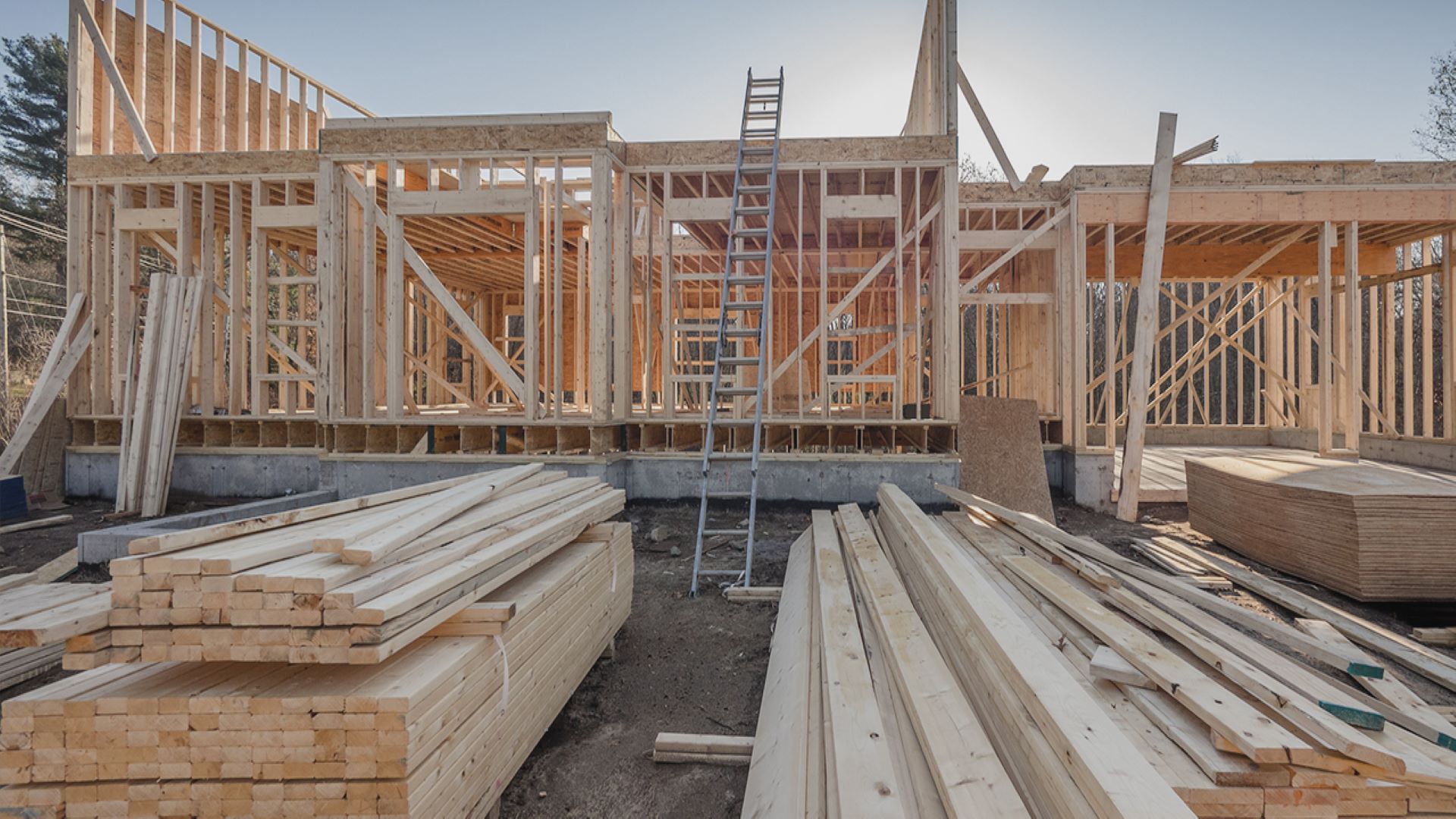Blog
Are pre-sales slowing you down? What to do instead
At ASAP Finance, New Zealand’s leading non-bank property development lender, we’re reshaping the way developers access capital. With banks retreating from development lending, there’s an urgent need for faster, more flexible funding that aligns with the realities of modern construction. Developers today don’t need outdated hurdles, they need certainty, speed, and practical support. Why pre-sales […]
What to look for in a property development funding term sheet
When we receive a development funding enquiry, the first question we usually get asked is: “What are your rates and fees?”. It’s a fair question – but comparing lenders isn’t that simple. Two lenders may offer similar rates and fees but deliver vastly different client experiences, structure those charges differently, and impose terms and conditions […]
Property development milestones – when your equity is required
Property development is a complex process that demands strategic planning, careful risk management, and access to the right funding solutions at every stage. The funding cycle typically consists of four key phases: Pre-Purchase, Consenting, Settlement, and Development. Each phase comes with its own unique challenges and funding considerations. Here, we break down the critical stages […]
Challenges Property Developers Face in Today’s Market
The property development landscape is constantly evolving, and in today’s climate, developers are facing a unique set of challenges that are reshaping the way projects are planned, financed, and executed. From regulatory hurdles to surplus residual stock, understanding these obstacles is crucial for navigating the industry successfully. After speaking with our clients, we thought we’d […]
Building the Right Team for Property Development Success (Part Two)
In property development, assembling a team of technical and strategic experts is only part of the equation. While professionals like planners, architects, and contractors lay the groundwork for your project, having a skilled financial and legal team ensures you can navigate the complexities of funding, legalities, and market positioning. In this continuation, we explore the […]
Building the Right Team for Property Development Success (Part 1)
In property development, the strength of your team can make or break your project. With so many moving parts and regulatory hurdles, it’s essential to assemble a team of experts who bring both technical skills and strategic insight. In this blog, we break down the key professionals you need and how their expertise drives the […]
What Makes a Great Property Developer? Insights from Our Experience with New Zealand’s Best
Drawing from our extensive experience working with leading property developers across New Zealand, we’ve pinpointed the key qualities that set the most successful apart. These traits not only drive the success of individual projects but also help establish a long-standing reputation in the property development industry. In this blog, we’ll delve into what we consider […]
Understanding Security Documents in Property Development Lending (Part 2)
In the complex world of property development finance, securing a loan involves various legal documents that protect both the lender and the borrower. In Part 1, we discussed the initial critical documents, and now we delve deeper into additional security documents that will typically accompany a property development loan. 4. General Security Agreement (GSA) A […]
Understanding Security Documents in Property Development Lending
When it comes to property development funding, securing loans through various legal documents is essential to protect both the lender and the borrower. The type and nature of the documents used can vary depending on the type of loan being provided. At ASAP Finance, we specialize in providing loans for property developments, which requires a […]
Your Building Consent has Issued – What are the Next Steps?
As a property developer, obtaining your resource and building consent is a significant milestone. However, the journey is far from over. Here’s a comprehensive guide on what to consider next to ensure your project proceeds smoothly and successfully. 1. Detailed Review of Consents Thoroughly examine your resource consent, engineering approvals, and building consent in […]
Navigating New Zealand’s Property Development Landscape in 2024
As 2024 unfolds, the New Zealand property market is a confluence of challenges and opportunities for developers. The mix of data presents a complex picture, making it difficult to discern a clear market direction. This update aims to distil key facts, offering insights to navigate the shifting sands of the property development sector. A Surge […]
Capitalised Interest Loans in Development Finance
Capitalised Interest Loans In the dynamic realm of development finance, capitalised interest loans serve as a strategic option for lenders and developers alike, offering flexibility to the client and risk mitigation for the lender. Let’s delve into the core features of capitalised interest loans and understand why it is the preferred repayment type in the […]
The Capital Stack – What is it and why does it matter?
The Capital Stack When it comes to property development, one of the most important concepts to understand is the capital stack. In simple terms, the capital stack refers to the different sources of financing that are used to fund a property development project. These sources of financing can include equity, debt, and other types of […]
10 Questions From Your Development Funder (Pt. 2)
10 Questions Lenders Ask When Funding Property Developments (Part 2) Welcome to part two of our blog series, where we explore the top 10 questions lenders and finance companies in Auckland will ask during the application process. The previous blog post covered the first five questions lenders will ask. In this instalment, we will delve […]
10 Questions From Your Development Funder (Pt.1)
10 Questions Lenders Ask When Funding Property Developments (Part 1) Securing funding for your property development can be challenging , but understanding what information is relevant to your lender can make the process less daunting. This blog post will be the first in a two-part series where we break down some of the critical questions […]
Settlement Defaults – What You Need To Know
It is well established that settlement default risk increases during downturns in the property market. A settlement default occurs when a purchaser fails to complete the purchase of a property according to the terms of a binding sale and purchase agreement. At ASAP, we have personally witnessed an increase in the number of purchasers attempting […]
Exit strategies
Formulating a robust exit strategy is a critical part of the development process. When assessing an application for a development loan, the credibility of a clients’ proposed exit strategy will be reviewed and assessed in detail. There are several ways a developer can exit a construction loan – the most common strategies being: to sell […]
The Subdivision Process
Subdivisions are a common feature in property development. The subdivision process is where a parcel of land is divided into one or more parcels. When complete, a unique Record of Title will issue for each new parcel of land. In our experience, some of the most common issues in development pertain to an inability to […]
Property Development Due Diligence – Neighbour Consents
In our previous blog we explored key factors property developers should consider when undertaking pre-purchase due diligence. In this blog, we revisit some of those concepts with a particular focus on neighbour consents and approvals. In our experience, neighbours will object to having a property development occur in their back yard. This is not surprising […]
Property Development Due Diligence
Thorough due diligence is an essential risk mitigation strategy that all purchasers need to undertake before acquiring a property. For developers, it is an opportunity to test a project’s viability and identify key risk items that may impede or prevent a project’s completion and you ability to obtain finance. Due diligence should include an investigation […]
Property Development Fund Flows and Sector Risk
By now, most property developers will be well aware of the credit crunch sweeping through the development finance sector. With limited funds at their disposal, development finance lenders are allocating funds on a preferential basis with a focus on existing client relationships – at the same time, lending criteria is adjusting. Lower LVRs and higher […]
Macro forecasts and credit availability
NZ’s largest financial institutions including the RBNZ, Treasury and most major trading banks provide forward guidance on NZ house prices as well as wider-ranging macro forecasts for the housing market. While such predictions make for good reading, they are of limited use when making investment decisions. This is because macro forecasts typically fall into one […]
Insurance and risk mitigation
As a builder or developer, you will know that working in construction means being vulnerable to all kinds of risks, many of which can result in compensation claims or financial loss. The inherently unpredictable and dangerous nature of the work means that you, your employees, sub-contractors, and members of the public are all vulnerable to […]
Navigating a Construction Boom
Property development has been thriving over the past 12 to 24 months. Low interest rates and insatiable demand for housing (from investors and owner-occupiers alike) has spurred one of the most significant construction booms since the 1970s. The industry that was hit hard during the GFC appears to have now fully recovered with a strong […]
Residual Property Valuation – What to Know as a Property Developer
Property valuation is a critical skill that all property developers need to learn. Basic principles of valuation are used when putting together a project feasibility, which is the starting point for many developers when assessing the viability of a new project. The resulting feasibility will dictate the price one can pay for the land, based […]
How Will Rising Interest Rates Impact Real Estate Markets in 2021?
COVID-19 triggered a global economic recession in 2020, and central banks across the globe reacted by slashing interest rates – a standard practice to prop up liquidity and stimulate the economy. More than a year later, regulators are still holding off on hiking the rates back up due to the continued effects of the pandemic. […]
Managing the risks of cost escalation
The Knight Frank Global House Price Index shows that global house prices lifted 7.3 per cent in the year to March 2021, and New Zealand had the second fastest growth globally with a 22.1 per cent increase. Property developers looking to take advantage of the favourable market conditions have ramped up residential building activity with […]
Rates and fees in the Development Finance Lifecycle
Property Finance in New Zealand “What are your rates and fees?” is perhaps the most frequently asked question by clients approaching ASAP property finance specialists for a construction loan. However, many developers do not take the time to consider how these costs are incurred over the life cycle of the property development project. Unless you […]
Housing Price Rise Triggers Government Response
New Zealand Finance Minister Grant Robertson now requires the Reserve Bank (RBNZ) to consider the impact its monetary policy decisions have on house prices, following a revision to RBNZ’s remit. This has created some significant ripples in the property finance sector. While the Government’s Monetary Policy Committee’s main objectives remain unchanged (targeting inflation and employment), […]
How the new LVR restrictions will impact lending
As has long been forecasted, the Reserve Bank of New Zealand (RBNZ) has now moved to reinstate higher Loan to Value ratios(LVRs). There were no restrictions last year, meaning buyers could potentially purchase a home while putting down a smaller down payment. However, the property market has since boomed, prompting the RBNZ to consult interested […]
Guide to the National Policy Statement on Urban Development 2020
New Zealand recently adopted a major change in urban environment planning that is expected to lead to significant upturns in the world of property finance. Gazetted on July 23rd and pushed into effect on August 20th of 2020, the National Policy Statement on Urban Development (NPS-UD) is an evolution on previous government documentation surrounding development […]
Breaking Down Loan-to-Cost Ratios in Development Finance
There are two key components to any initial loan assessment for development finance: a loan-to-value ratio (LVR) and a loan-to-cost ratio (LTC). Both are mathematical formulae, and both contribute to the success of your application. We have discussed LVRs in a previous blog post. Here, we break down the intricacies of its counterpart: LCRs. If you’re readying yourself to apply for development […]
What Unconventional Monetary Policy Means for Investors
COVID-19 has caused widespread disruption across global markets resulting in job losses and economic hardship. In response, countries across the globe have been implementing economic policy to soften the blow of the current crisis. In New Zealand, the Reserve Bank’s response was swift, immediately lowering the OCR from 1% to 0.25%, and announcing (what would […]
Market Update and Impact of General Election
The past few months have been a wild ride for those involved in Property Finance. It was only a few months ago that NZ was reeling from nationwide lockdown and mainstream economists were predicting house price declines between 7 and 15 per cent. However, the New Zealand housing market has fared far better than expected, and many economists and lending institutions (including the RBNZ) are now having to revise their forecasts upward. It would seem that the strength of the government’s fiscal […]
Loan to Value Ratios: What You Need to Know
The loan-to-value ratio (LVR) is one of the most common and widely used metrics in the world of property finance. For financiers, it is broadly used to manage and mitigate credit risk when creating a loan facility. For property developers and investors, understanding LVRs and their application in credit analysis will provide insight as to the likely challenges you will face when seeking a loan, as well as assist in identifying the best finance partner for your project. It is important to remember that the simple loan-to-value […]
The Ins and Outs of Lender’s Fees Explained
When developers are looking for a new build partner, they put their project out to tender. The evaluation process that proceeds is an intense and in-depth review of pricing, relevant experience, past performance, technical skills, resourcing, and other relevant factors. It is these factors that ultimately drive the decision-making process for the developer, ensuring that the right builder is chosen for the job. Unfortunately, many developers forget to apply a similar […]
How Cost-to-Complete Funding Works in Development
At ASAP Finance, we work closely with our clients to understand their development finance needs, then craft bespoke funding solutions that transform property ideas to reality. When we create a loan facility, we analyse each ‘input’ required to complete a project—considering elements such as planning, design, construction and delivery. In addition, we take into […]
Three Loan Repayment Types Explained by Experts
Whether you’re seeking a bare land loan or looking for a comprehensive development finance solution, structuring your loan repayments to meet your cash flow requirements will enable you to control your risk and maximise your return. Below is a comprehensive breakdown of the three repayment types; principal & interest, interest-only, and capitalised interest, and the […]
Notable Benefits of Non-Bank Lenders
ASAP Finance is an example of a reputable non-bank lender with strong business acumen and a history as a responsible lender. Our financial institution is the ideal place for those who want to accelerate development time frames and maximise return on equity. Unlike banks, we break down the barriers preventing your next project from getting […]
COVID:19: Investing in Property in a New Zealand Recession
Amid a widespread pandemic, the global economy is caught between cushioning the blow of a recession and planning for recovery. The impact on the property finance market will be significant, albeit mitigated by early policy responses from the NZ government and Reserve Bank. Comprehensive post-lockdown data is yet to be reported, and clarity as to […]
How COVID-19 is disrupting development finance
The COVID-19 outbreak will continue to cause significant adverse economic effects that will almost inevitably impair borrowers’ abilities to obtain and service mortgages. And unlike the mainstream banks – which can access new NZ Reserve Bank liquidity and funding support – non-bank lenders have a much more restrictive toolset to combat economic shocks. Billion dollar […]
Key Lockdown Issues for Property Developers in NZ
The impact of the four-week COVID-19 lockdown imposed by the NZ Government on non-essential services will be far reaching for Kiwi developers. We continue to urge our developers in NZ to focus on ensuring the success of their commercial development projects during these uncertain times. At a high level, property developers in NZ will be facing increased […]
Understanding Development Contributions
When attaining development finance, a key but often underestimated consideration for developers is accounting for Development Contributions (DCs). These costs are confirmed by a local council after lodging for Resource Consent. Getting a handle on what these costs will be prior to lodging for resource consent is key to understanding the profitability of your property project. Furthermore, for land bankers, understanding future DC […]
Ride the Property Tide Upward with Development Finance
Property finance in New Zealand has been a difficult market for the past few months owing to the current market conditions. However, there are now signs of renewed life in the New Zealand property market, with Auckland house prices rebounding quite strongly in the last quarter and average values now back above $1 million, according […]
Revised optimism for 2020
By the end of 2019 the NZ property market was showing signs of improvement – one needed only to have attended a pre-Christmas auction to notice the stark contrast in mood as previously indifferent buyers appeared now excited and confident to freely ‘bid away’. The turn in sentiment can be traced back to April 2019 […]
RBNZ’s new capital ratios and what they could mean
The New Zealand Reserve Bank’s long-signaled move to increase capital reserve ratios has in the end proven slightly less severe than some banking sector experts predicted. But it remains unclear what impact the move will have on interest rates. Ultimately the banks will have to raise around $20 billion to reach the new safety requirements, […]













































